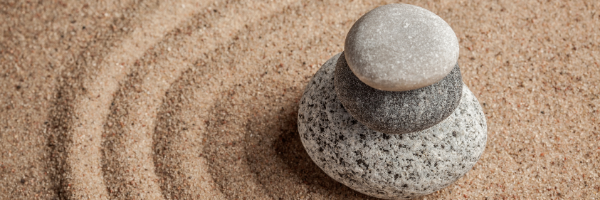|
What is Our Body Budget?
As humans we’re a complex mind-body system where the body and mind influence each other. In other words, to have a healthy mind and sufficient energy we need to have a healthy body. Neuroscience informs us that the brain’s most important mission is to predict our body’s energy needs in order to keep us alive and well. The ultimate in self-care. How our body maintains stability is called allostasis or our “body budget” as Dr. Lisa Feldman Barrett, neuroscientist, has coined the term. Why Maintaining a Balanced Body Budget Matters? Imagine your body budget is like a bank account where you are continually making withdrawals and deposits. Our brains don’t differentiate between a physical withdrawal from our body budget – working long hours, running a marathon, disordered sleep or a poor diet – or a mental withdrawal such as fear, worry or anxiety. To our brains it’s all withdrawals from the same system. If we make too many withdrawals and not enough deposits our body budget will become unbalanced and we will experience negative outcomes such as: • Low energy and fatigue • Increased stress and anxiety • Depression • Difficulty managing emotions • Lower resilience • Feeling overwhelmed • Pain Chronic imbalance will lead to outcomes, illnesses, such as chronic inflammation, chronic pain and depression. According to neuroscientist Dr. Irena O’Brien and Founder of The Neuroscience School - “If you’re eating a poor diet, not exercising or not getting enough good quality sleep you’re not going to feel well no matter what self-help tips you follow.” So, can we surmise that ground zero for human performance is a healthy diet, good quality sleep and regular exercise? Body Budget and Human Performance Consider the pyramid a visual representation of how our physiology, our foundation, is a key driver of our performance, or results. We can't argue with the fact that our behavior produces our results. But below the surface we have our thinking, our feeling, and our emotions and the basis of all, of everything, is our physiology. Our physiology determines our emotions which determine our feelings which determine our thinking which determines our behavior and finally our results. So, our physiology underpins our entire life. 1. Please think about your own experiences and a time when your body budget was out-of-whack and how you felt, your thoughts and behaviors and how that all affected how your day went, attending to tasks, interactions with others and so on. 2. Is there something you could have done differently to manage your body budget? Let’s explore the basics of how we can derail or help ourselves, why it matters and important actions we can take when our body budget is unbalanced. Balancing Our Body Budget Let’s start by reviewing our foundational triad of good quality sleep, exercise and diet! 1. A Healthy Diet When I asked expert Dr. Delia McCabe, neuroscientist, psychologist and author of “Feed Your Brain; 7 Steps to a Lighter, Brighter You” for a contribution to this article, she happily complied with one of her favorite quotes- “Thinking (cognition) occurs across a vast, sensitive and sophisticated neural network comprised of cells, chemicals and compounds ALL of which rely on nutrients to function optimally. Optimal brain nutrition therefore needs to be top of mind for anyone who wishes to nourish, nurture and protect their precious and irreplaceable brain.” Neuroscience research shows that a healthy diet also slows down cognitive aging and memory atrophy. The difference in cognitive age can be up to 7.5yrs when following a healthy diet long term, a significant increase in longevity. Additionally, the gut-brain connection is a two-way street and they influence each other. Therefore, good digestive health improves psychological well-being and psychological well-being improves digestive health. Proper hydration is also critically important for optimal brain and body functioning. Drink water to keep your brain well hydrated and all your cells in peak condition. It should always be your very first choice of fluid. The general rule to follow, as to how much water you should be drinking per day, is to drink 300 ml for every 10 kg of body weight, or 10 fl oz for every 22 lb. Healthy diets will have these factors in common: • Low in sugar and processed foods • High in vegetables especially leafy green ones • Some meat, fish or alternative proteins For some inspiring recipes and more info check out the resources below. 2. Good Quality Sleep Sleep contributes significantly to the process of learning and memory. It’s linked to neural restoration and physiological maintenance across multiple brain systems. The recommended amount of sleep for adults is between 7 and 9 hours, although one hour on either side may be acceptable. Sleep loss is linked to deficits in cognitive functions and impaired emotional function, including deficits in emotion regulation. As sleep debt accumulates across days, performance becomes progressively worse over time. There is no “catching up” on sleep. Some of us will be happy to learn that a daily, brief afternoon nap can improve cognitive deficits after restricted sleep and that napping can enhance learning and memory. The Sleep Foundation provides a wealth of information and specific strategies to improve sleep loss or tackle sleep disturbances depending on the individual challenge. Links to more info below. 3. Regular Exercise Exercise, along with a healthy diet and getting adequate sleep is a simple way to improve cognitive functioning, psychological wellbeing, and protect against cognitive decline. Neuroscience confirms that exercise leads to changes in both the structure of the brain and the way it operates, which together boosts learning in kids, gives adults an edge on cognitive tasks and protects against the cognitive declines of aging including depression. Did you know that exercise is a Level1, Grade A treatment for depression and anxiety? Exercise can include low intensity activities: walking, hiking, gentle yoga or be high intensity such as running and mountain biking. Engage in activities that you enjoy and work with your lifestyle, this way you are more likely to stay on track. According to ParticipAction Canada, healthy adults aged 18-64 years should accumulate at least 150 minutes of moderate to vigorous activity per week in bouts of 10 minutes or more. Muscle and bone strengthening activities are also recommended twice per week. Wrap Up How to restore your body budget? Simple, start with making sure you eat well, exercise and get enough good quality sleep. And make time for activities that make you feel good such as time with friends, yoga, reading a good book, getting outside to go for a walk or hike. To maintain my body budget I will: • Be sure to check-in regularly and cover the basics: eat a healthy diet, get good quality sleep and exercise. • Make time to read and meditate and get enough “quiet time” to relax, lower stress levels. • Take afternoon naps when needed. • Do activities with friends or solo that I enjoy to make me happy and keep me engaged. • Get outdoors! Hiking, walking my dog, swimming, skiing, kayaking to feel energized. In order to perform and feel our best our physiology needs to function at its best, so, when you feel out-of-whack, always do a body budget check-in first. I would love to hear how you manage your body budget in the comments below. Be safe and well everyone. With gratitude, Coach Karen Resources On Body Budget and Neuroscience o The Neuroscience School www.neuroscienceschool.com for up to date research in a wealth of article topics on all things neuroscience including diet, sleep and exercise. o Performance and Body Budget www.heartmath.org and from “Coherence: the secret science of brilliant leadership”, 2014 Dr. Alan Watkins For 1) Diet o A Lighter, Brighter You www.lighterbrighteryou.life is a wonderful resource for healthy eating guidelines, great ideas on recipes, tips on super foods, how to boost your immunity system, breaking the junk food habit, and so much more. o On hydration, Water is a Priority For the Brain, Dr. Delia McCabe For 2) Sleep o The Sleep Foundation www.sleepfoundation.org a great resource including tips for better sleep during isolation. For 3) Exercise o Participaction Canada www.participaction.com for more information on exercise guidelines for all ages and up to date research. o Outside Online’s "This is Your Brain On Exercise" by Kate Wheeling
1 Comment
|
Author
Karen Lukanovich, MBA, ACC, Olympian, Leadership and Performance Coach. Archives
February 2021
Categories
|
Unlock Your Potential!
Schedule a friendly chat
Here to assist you, please reach out by phone, email or via social media channels
Schedule a friendly chat
Here to assist you, please reach out by phone, email or via social media channels
ACC certified by and proud member of the International Coaching Federation (ICF)
www.karenlukanovich.com
www.summit2summitcoaching.com
www.summit2summitcoaching.com



 RSS Feed
RSS Feed

